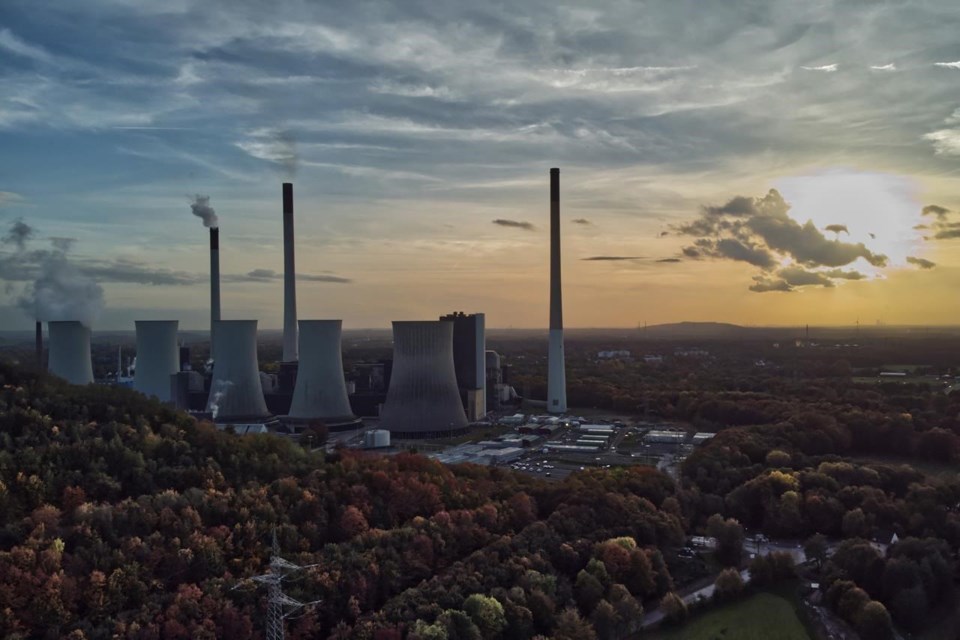BRUSSELS (AP) — European Union nations on Tuesday gave themselves yet another month to overcome deep differences on groundbreaking measures to shield their citizens from the energy crisis. Such initiatives are also necessary for the bloc to maintain a united front during Russia's war in Ukraine.
With winter approaching, home energy bills piling up and some businesses teetering on the brink of bankruptcy, there is a popular outcry for the 27-nation bloc to move much faster, especially after last week's EU summit claimed to have a sense of common purpose to agree on measures. EU nations have seen such a crisis coming straight at them almost from the day Russia invaded Ukraine on Feb. 24.
Yet, at the end of EU meeting of energy ministers, the most palpable decision was to task the executive Commission to prepare proposals ready for decision at a Nov. 24 emergency meeting.
“The Commission was given some extra homework,” said Dutch Energy Minister Rob Jetten.
With the onset of winter close, “a number of nations called for speed in developing the measures,” Jetten said. But because fluctuating global energy markets and different energy mixes among member states — ranging from nuclear to natural gas and other fossil fuels — make smart, lightning-quick decisions wickedly difficult, “many countries, including the Netherlands, want to see a better impact analysis.”
Germany too had similar warnings.
So even after last week’s draining summit and Tuesday’s meeting, the same sense of indecision remained.
Even if no technical decision were made, meeting chair Jozef Sikela, the Czech Deputy Prime Minister, said there was general consensus that member states should focus on the joint purchase of gas to avoid outbidding each other on in increasingly overheated market, and take measures to ensure short spikes driven by speculators will no longer unbalance markets.
“Europe has great market power,” Germany Energy Minister Robert Habeck said. “When the big players can get to an agreement ... or are allowed to purchase together, then Europe’s market power will show.”
A fuller price cap on gas and a “correction mechanism” in the market however, which has been at the center of the rift among member nations, remained out of reach. “As you can imagine, we have rather different views on the mechanism," the Czech Republic’s Sikela said.
Countries like Germany and the Netherlands want to be sure that suppliers will not simply bypass the EU if they don’t like the capped price on offer.
“The main question is how to make sure that capping will still allow us to buy the gas we need on the market,” Sikela said.
Key will be to decide what targeted steps would actually help to keep businesses running and households warm over the coming months.
As a result of trade disruptions tied to Russia’s war in Ukraine, EU nations have reduced the overall share of Russian natural gas imports to the EU from 40% before the invasion to around 7%. And gas storage has already far exceeded targets and stands at some 95% of capacity ahead of the winter heating season.
The EU has relied on increased imports of liquefied natural gas, or LNG, including from the United States, to help address the fall in Russian supplies. The bloc will need LNG shipments even more in winter 2023 to refill storages that still include Russian gas this year.
Along with mild weather so far and their commitment in principle last week to stand united, EU leaders said the efforts have helped drive down prices for gas from record summer highs.
Natural gas prices on the European benchmark TTF have been steadily dropping, falling to their lowest level since mid-June this week. Gas was trading at 96.51 euros per megawatt-hour late Tuesday, a far cry from the peak of 349.90 euros per megawatt-hour on Aug. 26.
The general question hanging over the frantic EU deliberations is whether any regulatory changes meant to curb gas prices would ultimately be self-defeating by encouraging consumption of the fuel. EU governments have already agreed to reduce demand for gas by 15% between this past August and March 2023.
Raf Casert, The Associated Press


